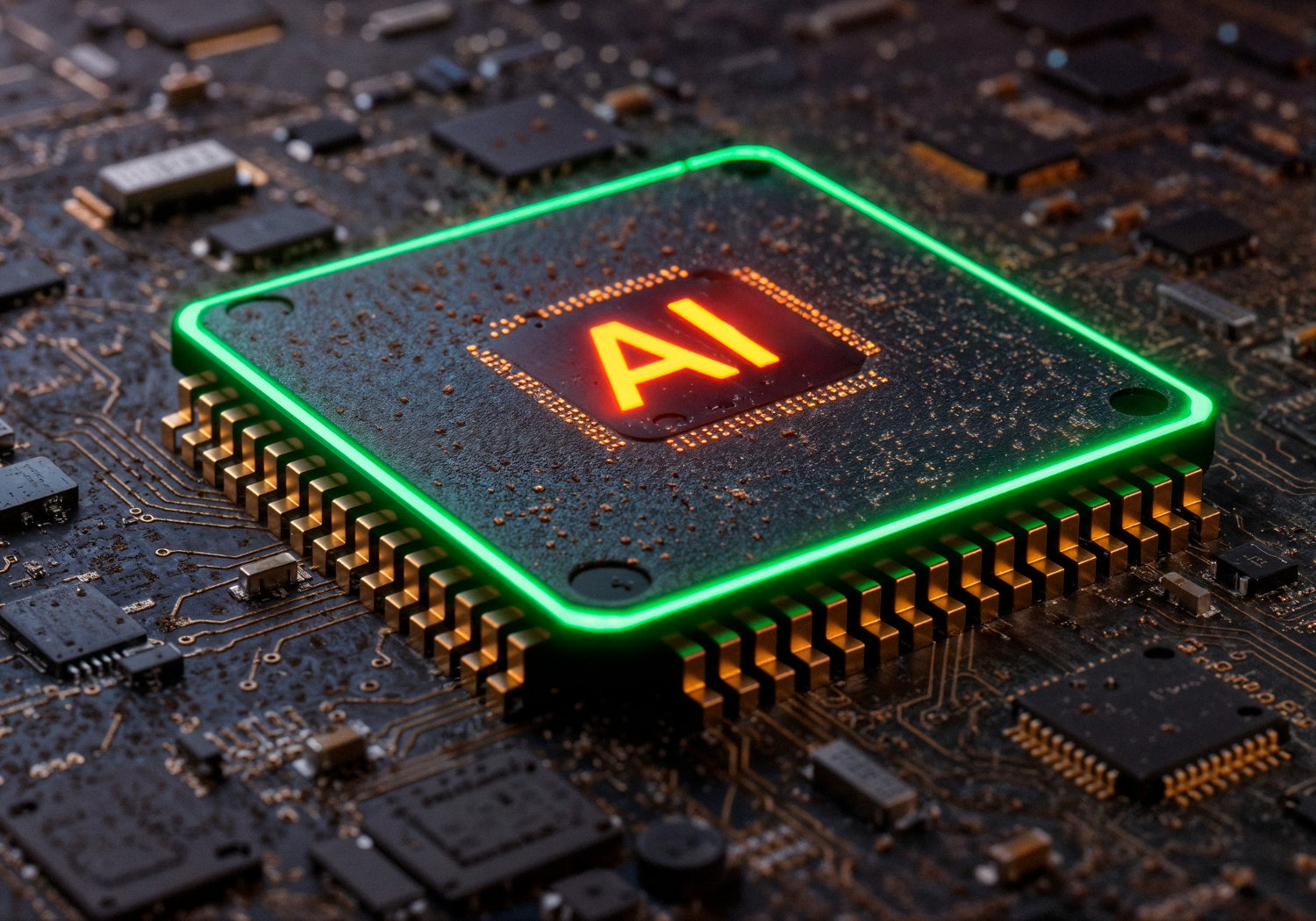Introduction
Artificial intelligence (AI) has rapidly become an essential tool in various industries, enhancing capabilities ranging from simple automation to complex problem-solving. A key factor that contributes to AI’s effectiveness is its ability to store and process information. This concept, while often referred to as “memory,” plays a crucial role in enabling AI systems to learn from data, make decisions, and improve over time. Understanding how these systems manage information is vital to appreciating their potential and limitations.
Information Storage and Processing in AI
In AI systems, the storage and retrieval of information are critical for performing tasks efficiently. These systems are designed to hold data that is either needed immediately or in the future. Just like in the human brain, this process can be divided into short-term and long-term storage.
Short-term storage in AI is akin to the working memory in humans. It temporarily holds information that is actively being used by the AI system, allowing it to process immediate tasks like understanding the context of a conversation or reacting to real-time data. This is particularly important in applications such as speech recognition and natural language processing, where the system needs to remember recent inputs to generate coherent outputs.
Long-term storage, on the other hand, is used for retaining knowledge that the AI might need in the future. This includes learned patterns, training data, and other relevant information that allows the AI to build upon previous experiences. Long-term storage enables AI systems to become more efficient over time, improving their ability to perform complex tasks.
The Role of Information Management in AI Systems
Efficient management of information is essential for AI systems to function effectively. In machine learning, for example, the ability to store and access vast datasets is critical for training AI models. The better an AI system is at managing this information, the more capable it becomes at handling complex tasks and adapting to new data.
Information management also impacts how well an AI system can solve problems. For instance, in autonomous vehicles, the AI must recall rules, road layouts, and previous interactions to navigate safely. This requires a combination of short-term processing and long-term knowledge retention to make informed decisions.
How AI Models Use Stored Information to Perform Tasks
AI models rely on stored information to execute specific tasks. In natural language processing, for example, the system must remember the context of a conversation to provide relevant responses. Similarly, in machine learning, the models use stored training data to learn patterns and make predictions. The efficiency of an AI model depends heavily on how well it can store and retrieve this information.
In real-time applications like autonomous driving, the AI system must access stored information quickly to make split-second decisions. This requires efficient information retrieval methods, even when dealing with large datasets. As AI models become more sophisticated, the need for effective information management becomes increasingly important.
Challenges in Implementing Information Management in AI
Managing information in AI systems presents several challenges. One of the primary challenges is dealing with the sheer volume of data that these systems need to process. As AI technologies advance, the amount of data they handle increases, necessitating more advanced storage and retrieval techniques.
Another challenge is ensuring that AI systems can access stored information quickly and accurately. In real-time applications, any delay in information retrieval can lead to suboptimal performance. Therefore, AI systems must be designed to manage and access information efficiently, even when working with extensive datasets.
Future Trends in AI Information Management
The future of AI will likely see significant advancements in how systems manage and retrieve information. Researchers and developers are focusing on improving the efficiency of these processes to handle larger volumes of data more effectively. New neural network architectures are being explored to better support the increasing demands of AI applications.
Additionally, the integration of AI with emerging technologies like quantum computing could revolutionize how information is processed and stored. Quantum computing has the potential to greatly enhance AI’s ability to manage information, enabling it to tackle even more complex tasks.
As AI continues to evolve, effective information management will become increasingly important. Improved techniques and technologies will enable AI systems to operate more efficiently, making them more powerful and capable of solving a broader range of problems.
AI’s Relationship with Human Experts and Information Management
In the development and deployment of AI systems, the role of human experts remains indispensable. Although AI technology is advancing rapidly, with systems capable of processing vast amounts of data and performing tasks once thought to require human intelligence, the input and oversight of human experts are still crucial. This collaboration between AI and human expertise is especially important in complex and critical applications, such as healthcare, finance, and autonomous systems.
Human experts provide the necessary guidance during the design and implementation of AI systems. Their deep understanding of the domain ensures that AI systems are built to handle specific tasks accurately and effectively. In the United States, where AI research and development are highly advanced, there is a strong emphasis on integrating human expertise into AI processes to enhance the reliability and safety of these systems.
One of the key areas where human experts contribute significantly is in the management of information within AI systems. While AI is adept at processing and analyzing vast amounts of data, it still requires human oversight to ensure that the data is relevant, accurate, and used ethically. This is particularly important when AI systems are deployed in real-world scenarios, where the consequences of errors can be severe.
Human experts also play a critical role in fine-tuning AI models to improve their performance. For instance, in machine learning, models are trained using large datasets, but they often need to be adjusted based on human insights to achieve the desired outcomes. This process of fine-tuning ensures that AI systems can handle specific tasks with greater precision and reliability. In many cases, human experts are responsible for setting the parameters that govern how AI systems process and store information, both in the short term and long term.
The concept of term memories in AI, which includes both short-term and long-term information storage, is a key area where human expertise is vital. While AI systems can store and retrieve information, they rely on human experts to design the structures that determine how this information is managed. This includes decisions about what data should be stored for immediate use (short-term) and what should be retained for future reference (long-term).
In industries like finance and healthcare, where the management of information can have life-altering implications, the involvement of human experts is essential. They ensure that AI systems not only perform tasks efficiently but also adhere to ethical standards and regulatory requirements. In the United States, regulatory bodies often require that AI systems be overseen by qualified professionals to ensure compliance with laws and regulations.
Moreover, human experts are crucial in monitoring and updating AI systems over time. As AI systems are exposed to new data and tasks, they must adapt to maintain their effectiveness. Human experts oversee this process, ensuring that AI systems continue to perform optimally as they encounter new challenges. This ongoing collaboration between AI and human expertise is key to the successful integration of AI technologies in various sectors.
How TechnoLynx Can Help
TechnoLynx is at the forefront of developing AI solutions that excel in information management. Our team of experts specialises in designing AI systems that can efficiently store and retrieve data, ensuring optimal performance across a wide range of applications.
We offer a variety of services tailored to meet the unique needs of your business, from developing custom AI models to optimising existing systems. Whether you need real-time capabilities or large-scale data management, TechnoLynx has the expertise to deliver solutions that meet your specific requirements.
Our approach involves closely working with you to understand your goals and challenges, allowing us to create AI systems that are not only efficient but also scalable and adaptable to future needs. By partnering with TechnoLynx, you can be confident that your AI systems will be equipped with the necessary tools to handle complex tasks and large datasets effectively.
Conclusion
Information storage and retrieval are critical components of AI systems, enabling them to learn, adapt, and make informed decisions. By understanding how these processes work, businesses can better appreciate the capabilities of AI and make informed decisions about implementing these technologies.
As AI continues to advance, the ability to manage information efficiently will become even more crucial. With the right strategies and technologies in place, AI systems will become more powerful and capable of tackling a broader range of challenges.
TechnoLynx is committed to helping businesses harness the full potential of AI. Our expertise in AI information management ensures that your systems will perform at their best, regardless of the complexity or scale of the tasks at hand. Contact us today to learn more about how we can help you achieve your AI goals.
Read more: Understanding AI Memory: Exploring the Neural Network Recall!
Image credits: Freepik













